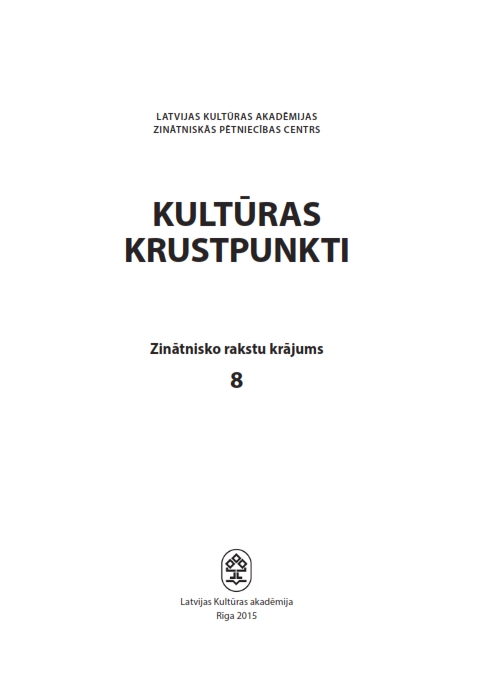BERNHARDA RAIHA RADOŠĀ DARBĪBA LATVIJĀ: 1951–1972
BERNHARD REICH’S CREATIVE WORK IN LATVIA: 1951–1972
Author(s): Līga UlberteSubject(s): Theatre, Dance, Performing Arts, Cultural history, Political history, Sociology of Culture, Post-War period (1950 - 1989), Sociology of Politics, Sociology of Art, History of Art
Published by: Latvijas Kultūras akadēmija
Keywords: Asja Lācis; Italy; theatre education; politics; political theatre
Summary/Abstract: Director and theatre theoretician Bernhard Reich (1894–1972) is one of the most outstanding personalities of the German theatre of the 1920s, who, as a director and co-playwright, has collaborated with Max Reinhardt and particularly with Bertolt Brecht. In 1922, in Berlin, Reich meets Anna Lācis, with whom he leaves for the Soviet Union in 1926 and spends the rest of his life together. Having survived the reprisals of Stalin’s regime, Reich spends the last twenty years of his life in Latvia, where his creative endeavours are manifested in three ways. Firstly, Reich directs two productions in the theatre: H. Ibsen’s “Hedda Gabler” (Valmiera Theatre, 1956) and B. Brecht’s “Mother Courage and Her Children” (the State Philharmonic of the Latvian SSR, 1969). Secondly, during the 1960s and 1970s, Reich publishes reviews of Latvian theatre productions and articles about playwriting abroad in the Latvian periodicals. Thirdly, a number of Latvian museums and archives house Reich’s own correspondence, mostly addressed to Lācis and discussing both professional and private issues.
Journal: Culture Crossroads
- Issue Year: 8/2015
- Issue No: 2
- Page Range: 100-106
- Page Count: 7
- Language: Latvian

